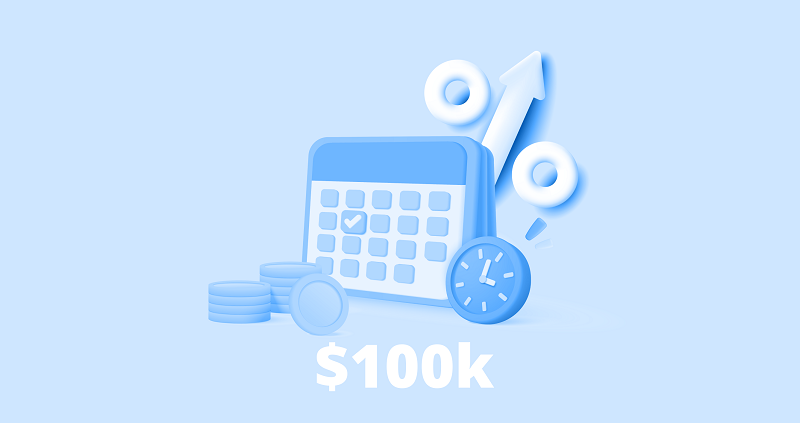Where to invest money to get good returns
Smart investment strategies to maximize returns in 2025
Diversification is key: 2025 offers various options for investments with good returns, from low-risk savings accounts to higher-yield REITs and bonds.
Balancing risk and reward: Safer investments offer stability but lower returns, while riskier ones provide higher growth potential.
Smart investing requires planning: Consider your risk tolerance, finances, and timelines to choose the best investment strategy for you.

Benefits of investing
Investing can be an effective way to put your money to work for you. It can be beneficial by contributing to long-term wealth, planning your retirement, meeting financial goals, or staying up to pace with inflation. By taking advantage of time and compounding, investing can help maximize your financial future.
Everyone has their own unique financial goals and investment strategies. Although it may seem overwhelming in the beginning, there are many guides on investing for beginners and tips on how to invest. You want to make sure you have defined goals on what you want to achieve with your investments, while also understanding potential risks you can face. If you are looking for where to invest money to get good returns, here are some unique opportunities for 2025.
Investment options for 2025 — Where to invest money for high returns
Investing can sometimes be a rollercoaster ride, especially during periods of volatility. During times like this, you may want to consider diversifying your investment portfolio, or looking to more stable investments. Although it would be ideal to know where to invest money to get the best returns, the answer may be a bit underwhelming — it depends.
Because most investment options can be open to nearly everyone, factors such as age, income, investment goals, and risk tolerance can influence which investment options would best suit your needs. There are many ways to invest money, each with their own risk-reward profile. While markets can be volatile due to changing economic conditions, concerns about market reactions and economic uncertainties may cause investors to feel uneasy about how things will unfold.
If you are wondering where to invest money for the highest returns, here are five investment options you could consider for good returns in 2025:
High-yield savings accounts
High-yield savings accounts provide higher interest rates than traditional savings accounts, allowing your savings to multiply at faster rates.
Interest rates are currently still high, despite rate cuts by the Federal Reserve (the Fed), and may stay above inflation levels for much of the year, allowing you to potentially gain purchasing power. High-yield savings accounts may be a good low-risk option for someone who may need to access their money in the near future, and doesn’t want to risk potential losses from higher-risk investment options.
Contrary to the traditional brick and mortar banks, high-yield savings accounts are often offered by online banks. The Raisin marketplace offers a wide-range of high-yield savings accounts with competitive interest rates, and does not charge extra fees for opening an account.
Certificates of deposit
Certificates of deposit are a type of savings account that offers fixed interest rates for a set period of time. As interest rates continue to fluctuate, now could be a good time to lock in a fixed rate, in case interest rates go down like expected in 2025.
To further take advantage of high interest rates, you can also consider a CD ladder — an array of CDs at staggered maturities. For example, you open four CDs across four years, with one CD maturing per year. This would provide more liquidity, and reduce your reinvestment risk. This can be an attractive low-risk option if you are unsure how interest rates will change in the future, allowing you to potentially diversify your risk.
CDs may be a good strategy for risk-averse investors who are looking to generate consistent returns. They are considered relatively safe investments, and a CD ladder can ensure that money is constantly flowing in.
The Raisin marketplace can help you find the best rate across the nation, so you don’t have to solely rely on options available in your area. Read more about how to invest in CDs, and lock in competitive interest rates to start earning money today.
Treasurys or Treasury ETFs
A Treasury Exchange-Traded Fund (ETF) is an investment fund that holds U.S. Treasury securities and trades on the stock market like a regular stock. It allows investors to easily invest in Treasury securities without buying them individually, offering diversification and stability.
Short-term Treasury ETFs expire in less than a year, with funds paying returns fluctuating with the Fed funds rates. These funds would accumulate interest throughout the month, which would then be paid out at the end of the month.
Treasury ETFs may be considered a lower-risk investment. However, interest rates are not guaranteed, and may fluctuate at any given time if the Fed shifts interest rates. Investors therefore have more liquid investments that are paid out monthly. While interest rates are no longer at their peak, rates are still quite competitive.
Bonds (Corporate & Government)
Bonds are loans investors hand out to governments, companies, or other organizations in exchange for regular interest payments and the return of the principal at a set date.
The three main types of bonds include:
- Corporate bonds, which are issued by companies.
- Government bonds, including Treasury notes, bonds, and bills, which are issued by the U.S. government.
- Municipal bonds, which are issued by state and local governments and organizations.
Bonds may be considered fixed-income securities because of the constant stream of payments. Government bonds are generally considered a low-risk investment option, since they are backed by the U.S. government. However, corporate and municipal bonds may be considered a riskier choice.
Due to the lower volatility and fixed-income, government bonds may be a more common option for investors closer to, or already in, retirement. Those looking for a potentially higher yield, and who have more room for taking risks, may also consider corporate bonds as investments with good returns.
Real Estate Investment Trusts (REITs)
If you don’t have the funds to invest in real estate property — and are comfortable with all the associated risks with such an investment — real estate investment trusts, or REITs, may also be an option to consider.
A REIT is a company that owns, operates, or finances income-generating real estate, such as apartment buildings, malls, hotels, or office buildings. REITs allow investors to gain exposure to real estate without directly owning properties, and must distribute at least 90% of their taxable income as dividends. There are many REITs that are publicly traded, offering liquidity, diversification, and potential long-term growth.
Due to the easing of inflation and interest rates, along with a high demand for commercial property against short supply, this may offer opportunities for REIT and real estate investments in general. Resilient performance, favorable market dynamics, and stable return projections may suggest REITs could play a role in diversified investment strategies in volatile market environments — however, there is no guarantee on returns, and it is also important to consider any risks that come with this type of investment.
Risk-reward trade off of low-risk investments
Investing always comes with some sort of trade-off between risk and potential returns.
The risk-reward tradeoff of low-risk investments refers to the balance between safety and potential returns. Low-risk investments, such as high-yield savings accounts, CDs, Treasurys, government bonds, and REITs may offer better security and lower volatility. The tradeoff, however, is that they generally provide lower returns compared to high-risk assets like stocks. If you want to invest money with guaranteed results, it is important to consider risk-reward tradeoffs to make the most of your funds.
Things to consider before investing
Although investing can contribute to building your wealth, it may also be risky. You may want to consider balancing possible gains with the risk involved. Factors like your risk tolerance, financial situation, knowledge of investing, and time horizon may influence your investment strategy.
Risk tolerance: Risk tolerance refers to how much you can withstand fluctuations in the value of your investments. Your willingness to take risks and potentially experience losses, or if you would rather take a more conservative approach, may help you determine where you want to invest your money.
Financial situation: Your financial situation can influence how much you are able to invest. If you have more money— for example you are looking where to invest $10K, $20K, $50K, $100K, $200K, or $500K — and time to invest, you may even consider riskier investments. However, if you want to develop an investment strategy with minimal starting funds, you may want to consider a safer option like a CD or high-yield interest account.
Knowledge: Your knowledge of investingmay also influence where you choose to invest your money. If you are looking for a quick and simple guide to investing for beginners, it may not be wise to dive head first into a high-risk investment.
Time horizon: Time horizon refers to when you will need to access your funds. If you have a shorter time horizon, you may want to focus on safer, less volatile options like CDs or even government bonds. If you have a longer time horizon, you may be able to create a more diversified or riskier approach. Understanding individual investment options and the trade-offs between risk and return along with your personal situation is important to help you make an informed decision on where to invest money for high returns.
Start investing in your future today
Despite market uncertainties, 2025 has presented some unique investment opportunities to help you achieve strong returns. While investing can be a great way to help you build wealth, it is important to learn about and understand different investment options, from safer to riskier ones. Understanding the pros and cons of investment options is key to making an informed decision.
Investing doesn’t have to be overwhelming. By evaluating your risk tolerance, financial goals, and investment timeline, you can create a strategy that aligns with your needs. Financial decisions are personal, and what works for one person may not work for another. Keep in mind that this is only generalized financial information, and you may want to consider speaking with a financial professional before making any investments.
Ready to start? Explore competitive interest rates and diverse products on the Raisin marketplace today.
The above article is intended to provide generalized financial information designed to educate a broad segment of the public; it does not give personalized tax, investment, legal, or other business and professional advice. Before taking any action, you should always seek the assistance of a professional who knows your particular situation for advice on taxes, your investments, the law, or any other business and professional matters that affect you and/or your business.


